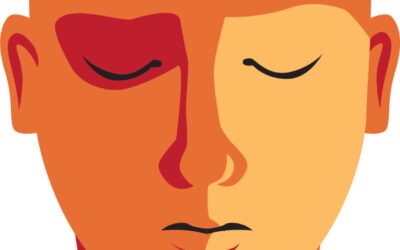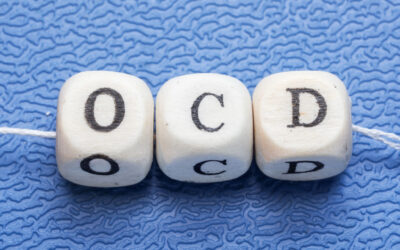
Eating disorders are dangerous conditions caused by recurrent eating patterns that have an adverse effect on your health, your moods, and your capacity to carry out essential life functions.
The majority of eating disorders are characterized by an unhealthy obsession with food, body image, and weight. These actions can have a serious negative effect on your body’s capacity to absorb the proper nutrients. Eating disorders can cause various ailments and affect the heart, gastrointestinal tract, bones, teeth, and mouth.
Dietary restrictions or avoiding particular foods, binge eating, purging by vomiting or abusing laxatives, or compulsive exercise are all behaviors linked to eating disorders. These actions may become compelled in ways that resemble addiction. Most frequently, mood and anxiety disorders, obsessive-compulsive disorder, and issues with alcohol and other drugs co-occur with eating disorders.
Eating disorders are significantly more prevalent in girls and women and typically begin to manifest in the teenage and early adult years. Although the exact source of eating disorders is unknown, they appear to coincide with other psychological and physiological conditions such as substance addiction, low self-esteem, sadness, and anxiety.
Some people use their obsession with food as a means of taking charge of a certain area of their lives. Even while it may just involve eating a little bit more or less than normal at first, the behavior can quickly get out of hand and control the person’s life. If untreated, eating disorders are a significant medical condition that can have an adverse effect on long-term health.
Types of eating disorders
- Anorexia nervosa – Extreme weight gain anxiety is a fear shared by those with anorexia nervosa. They frequently follow a strict diet and workout routine, sometimes to the point of starving. Most anorexics also binge and purge by vomiting or abusing laxatives. Anorexics believe they are overweight even when they are actually underweighting because of their distorted perception of their bodies. They can have an obsession with calories and only allow themselves very little amounts of particular foods. Anorexics frequently deny that they have a problem when questioned. Since anorexia develops gradually, the early symptoms can be mild. It could start as a desire to diet before a special occasion like a school dance or a beach trip. But as the condition worsens, the obsession with weight grows.
A few symptoms of anorexia nervosa include –
- Dramatic weight loss
- Obsession with eating, dieting, calorie counting, etc.
- Refusal to consume specific foods, such as carbohydrates or fats
- Either avoiding meals or dining in public
- Excessive exercise
- Making remarks regarding being “fat”
- Missing your period
- Complaining of stomach pain or constipation
- Bulimia nervosa – Bulimia nervosa sufferers experience episodes of bingeing, which is when they eat tons of food and then forcefully vomit, use laxatives, or engage in excessive exercise. In contrast to anorexia, bulimia patients frequently have a normal weight. However, they share the same crippling anxiety over putting on weight and deviant body image. They are motivated to lose weight because they believe they are “fat.” People with bulimia become quite adept at concealing their bulimic habits since they frequently feel disgusted and humiliated by themselves.
These are typical symptoms of bulimia:
- Evidence of binge eating may include big volumes of food disappearing quickly or a large number of empty food wrappers or containers.
- Evidence of purging, such as after-meal bathroom visits, vomit sounds or smells, or laxative or diuretic packages
- Eating in secret, skipping meals, or consuming only a tiny amount of food
- Excessive exercise
- Putting on loose clothing to conceal one’s body
- Complaining that they are “fat”
- Using too many mints, gum, or mouthwash
- Perpetually dieting
- Knuckles scarred from repeatedly forcing a vomit.
- People with binge eating disorder frequently have instances where they overeat, as opposed to simply eating too much all the time. Similar to bulimics, they frequently experience a sense of being less and less in control of their conduct during these moments, which they subsequently come to regret. The more upset they are about bingeing, the more they appear to do it, and the behavior spirals out of control. People with binge eating disorders are typically overweight or obese because they do not purge, fast, or exercise after bingeing.
Binge eating disorder common warning signals include:
- Evidence of binge eating may include big volumes of food disappearing quickly or a large number of empty food wrappers or containers.
- Keeping big supplies of food hidden or hoarding it
- Putting on loose clothing to conceal one’s body
- Avoiding eating in front of others or skipping meals
- Constant dieting, but infrequent weight loss.
- Avoidant/restrictive food intake disorder – ARFID patients avoid eating because the smell, taste, texture, or appearance of food disgusts them. They could worry that they’ll choke or throw up. They don’t suffer from anorexia, bulimia, or any other illness that could account for their eating habits.
People who have avoidant/restrictive food intake disorder usually –
- Avoid or show little interest in food
- Acquire less weight than anticipated, or lose weight
- Have a positive body image without being fearful about gaining weight.
These conditions can have severe physiological impacts on an individual including reduced blood pressure, irregular or slow heartbeats, constipation and bloating fatigue, weakness, dizziness, or faintness, unusual menstrual cycle, weak bone density, sluggish growth and delayed puberty, etc.
They can also have significant mental health effects including feeling alone, lonely, or sad, worrying about gaining weight or injuring themselves, having trouble with alcohol or drugs, having low self-esteem, obsessive-compulsive disorder, depression, and difficulty coping with stressful emotions, etc.
Interventions and treatment
There are several ways to get assistance, it is typical to start treatment at the most basic level and work up as necessary.
- Therapy and psychological help – You must alter your thoughts and behavior in addition to your diet and medical care if you want to recover and stay healthy. Everyone with an eating disorder needs psychological treatment as a necessary component of their care. It offers a chance to identify the causes of an individual’s eating issues and figure out how to address them. Although there are numerous varieties of psychological treatments, all entail consulting with a therapist or a psychiatrist. These therapies are intended to assist you in comprehending your thoughts, behaviors, and interpersonal interactions so that you can make adjustments that will lessen your distress and simplify daily life. This includes family therapy, CBT, interpersonal and psychodynamic therapy, etc.
- Nutritional treatment – Effective treatment for those with eating problems must always include regular and enough nourishment. Your therapy program must include a non-negotiable component on proper nutrition. The key to your treatment is regaining a healthy weight and supplying your body with the nutrition it requires to stay healthy. You will often have a customized diet plan for you by a dietician with experience treating eating disorders to ensure that you obtain all the important proteins, carbs, fats, vitamins, and minerals your body requires. The dietitian’s job is to support you in incorporating healthy eating into your daily routine. You won’t be able to change your habits overnight, but with practice, you may develop a positive and stress-free relationship with eating.
- Medical treatment – Medical issues brought on by vomiting, laxative use, or malnutrition may require care. Additionally, general health and dental care may be necessary. Medical issues brought on by malnutrition can be serious and even fatal. Examples include dehydration, low amounts of blood sugar, anemia (lack of red blood cells), low blood pressure, a heartbeat that is incredibly irregular, renal and liver issues, alterations to the way your brain is organized, constipation, osteoporosis, or stomach discomfort. Because of excessively high levels of cholesterol or triglycerides in the blood, high blood pressure, or high blood sugar, individuals with bulimia nervosa or binge eating disorder who have gained a lot of weight may already have cardiovascular disease. Additionally, they can be in danger of getting diabetes. The standard examinations and therapies for these illnesses can be scheduled by your healthcare team.
Conclusion
Therapy is a common component of eating disorder treatment. The type of eating problem you have and the strategy that works best for you personally may influence the type of therapy that is employed.
In general, counselling teaches you techniques that can help you alter the habits or cognitive processes linked to your eating disorder. You can heal by utilizing these in your day-to-day activities.
Knowing that help is accessible and that there are many services that may help you obtain help if you have an eating issue is always crucial. Keep in mind that obtaining treatment is a crucial first step in your road to recovery.
7 Cognitive Distortion & Way to deal with them
Cognitive distortions or faulty thinking patterns are unnecessary or irrational thought habits. These negative thought patterns can contribute to issues like anxiety, sadness, and substance abuse as well as decrease your motivation and self-esteem. Cognitive...
Are you Unhappy with your Life?
There are many challenges in life that are beyond your control. You have no influence over the weather, your inherited traits, incurable diseases, or your aging process. Although you might have influence, you can't really stop other grownups from acting the way they...
How to Deal with Body Image Issues
Body image is a person's perception of their physical appearance and their level of attractiveness. Concerns regarding one's body image are common. These worries frequently centre on one's weight, skin, hair, or the size or shape of a certain bodily part. But our...
Intrusive Thoughts – Knowing the Causes, Types, and Treatment
What are intrusive thoughts? Ever been in a normal social setting like your classroom or office, and suddenly an unwanted thought or image pops up that makes no sense? In most cases, you overlook these thoughts and continue with your day, but some of them become...
How to deal with Obsessive Compulsive Disorder (OCD)
WHAT IS OCD? OCD or obsessive-compulsive disorder basically consists of two major components, obsessive thoughts or fears, and compulsive behaviors. As the name suggests, it is a chronic condition where an individual suffers from persistent unwanted thoughts, after...
6 Signs you are suffering from Narcissistic Abuse
Narcissistic abuse is a form of emotional abuse in which the perpetrator only cares about himself and may exploit their partner's behaviours and words to control their mood and conduct. NPD or narcissistic tendencies are characterised by a pattern of dominating,...






